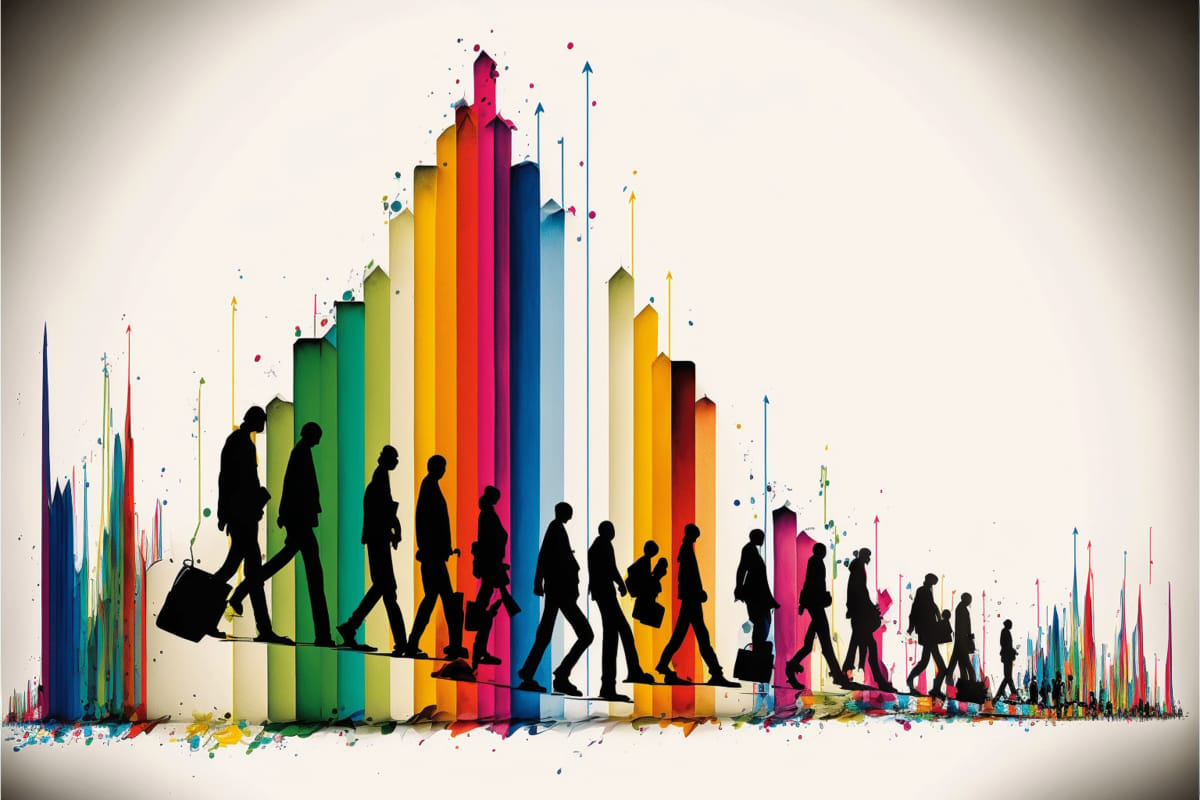Is Equality Unnatural?

I’m still struck by an observation that Scott Galloway has been making lately. He keeps talking about how the top 5% of men in terms of income and other measures are getting all the attention from women on dating apps. He says everyone keeps freaking out about this like it’s new, but it’s actually a return to the norm. For most of history you basically had poor people and rich people, and the rich men had their pick of most women.
This reminds me of Piketty’s analysis of inequality measured by things like the GINI coefficient. His massive book on the topic talked about how it basically runs in cycles. You basically have a return to massive inequality, and then you have a traumatic event like war, famine, pandemic, etc. that equalizes things. But only temporarily.
In the US the early 1900s were massively unequal. Then the wars happened and we got the GI Bill and a bunch of social programs, and that all created the middle class. But in this model, the middle class isn’t natural. It’s an artificial construct invented by humans. This is really powerful because it ties in with the analysis of change above. If you’re liberal, you believe that you just need to give some oppportunity, and level the field, and everyone will reach similar heights. Hence, GI Bill and social programs. If you’re conservative you might think some of that is ok, but you can only help so much before you’re just wasting money on people who don’t want or aren’t capable of benefiting from the help.
I believe there’s a Pokémon Evolved Form that merges, or goes beyond, those two models. I believe the conservatives are right that there are vast differences in peoples’ individual capabilities, and so we should expect to see similar differences in outcomes. But I’m aggressively liberal because I don’t think conservatives are doing the work to tell the difference between trauma, generational disadvantage, and natural capabilities. In other words, I think too many Conservatives look at a failing person, or a failing group, and say, "See? That proves they’re not capable. That’s why they don’t deserve nice things."
Whereas when I see someone fail, I wonder how much of it is a capability issue vs. a trauma issue. And I believe it’s the job of civilization, and the people, and government to tease that out. It’s our job to remove the disadvantages of bad luck, historical deck-stacking, and institutional biases so that people can reach their full potential.
Finally, I also believe that those who end up on the bottom after all that, still deserve a good life. They’re not throw-away people. No one is.